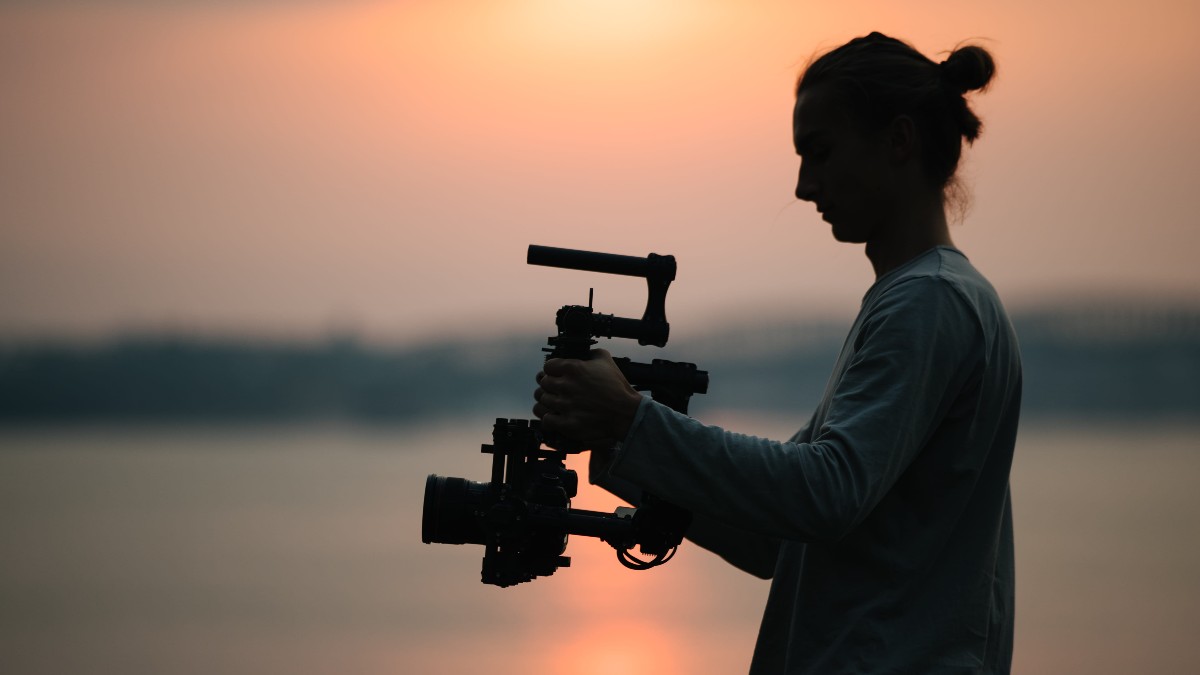
Discover 10 amazing gimbal techniques that will blow you away and give your footage that incredible cinematic look. They can be used in short films, promotional videos, and documentaries regardless of the reason for needing to film a movie.
‘Give your short films that high-end Hollywood look with these gimbal moves’
The Follow – Move No. 1
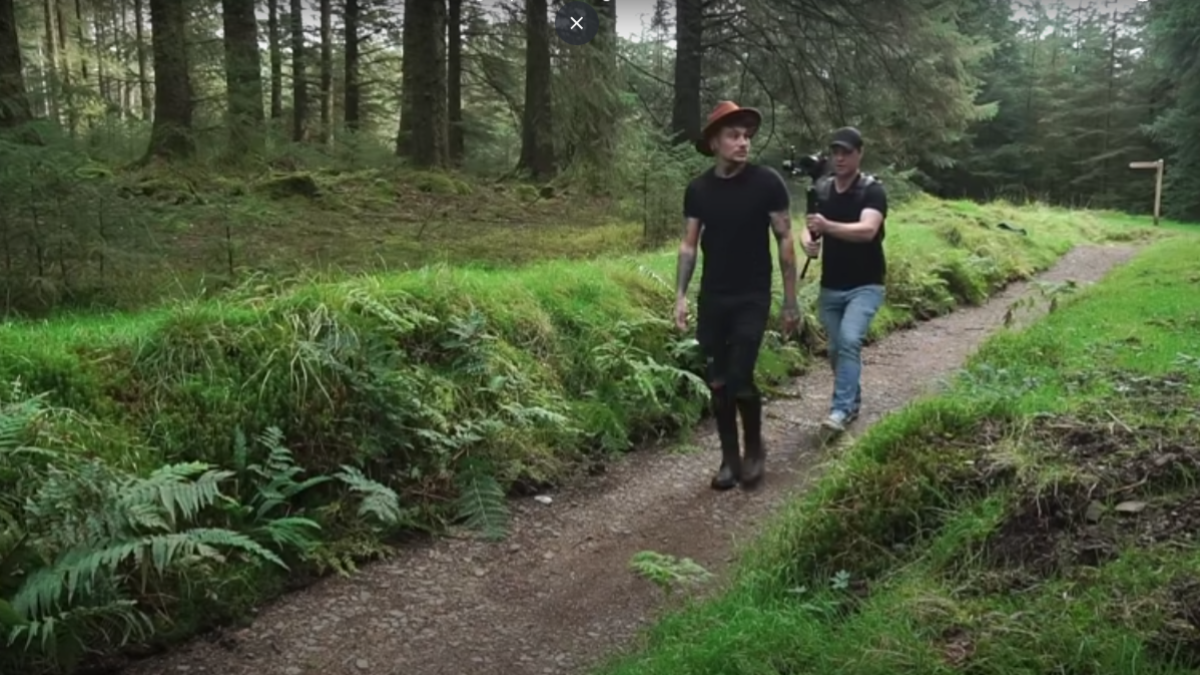
Tip: A classic yet easy one to begin with. We’re simply going to follow our subject from behind keeping an equal distance from them at all times. This is a great shot for showing off your location. Keep your subject in the center of the frame and as always keep your movement smooth and consistent.
Also experiment with your angles, focal length, and distance from your subject. You may take the shot from a lower angle a wider focal length and from further away.
The Reverse Follow – Move No. 2
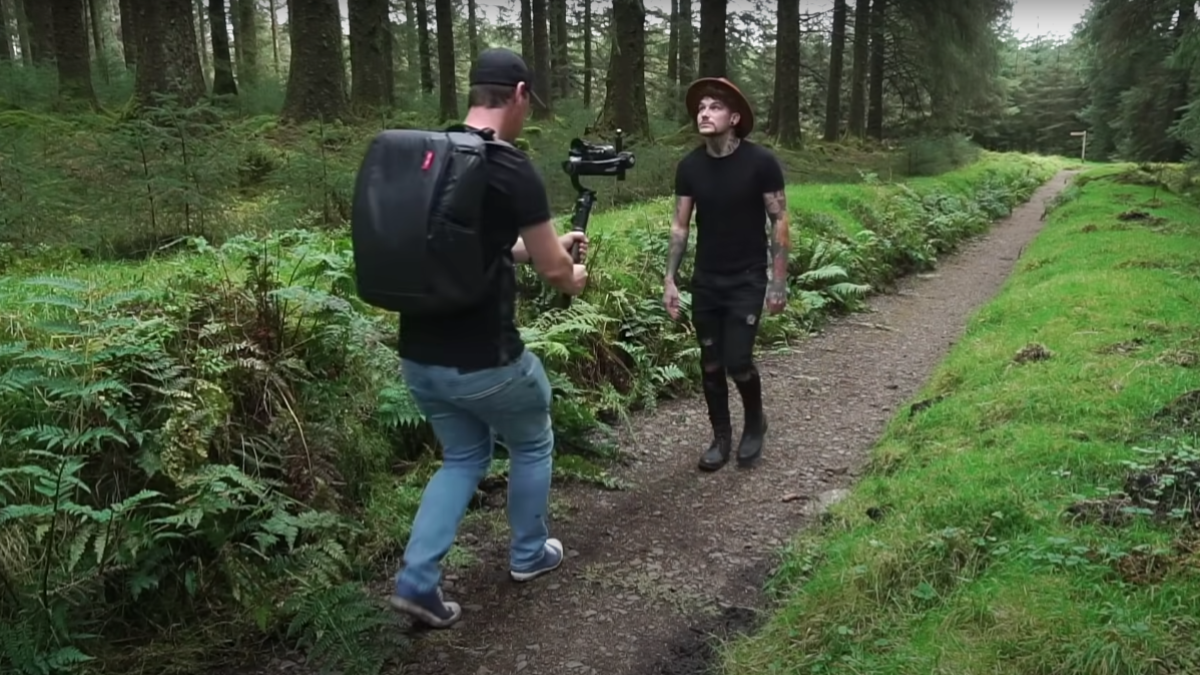
Tip: The Reverse Follow is exactly the same move as The Follow. Only this time we’re tracking our subject from the front and walking backward. Another classic, this one is used in many Hollywood films. It is a great way of establishing your subject and can really help add production value to your footage.
Try to experiment with your focal lengths and choose the one that works best for you and the story that you’re trying to tell.
The Step-In Reveal – Move No. 3
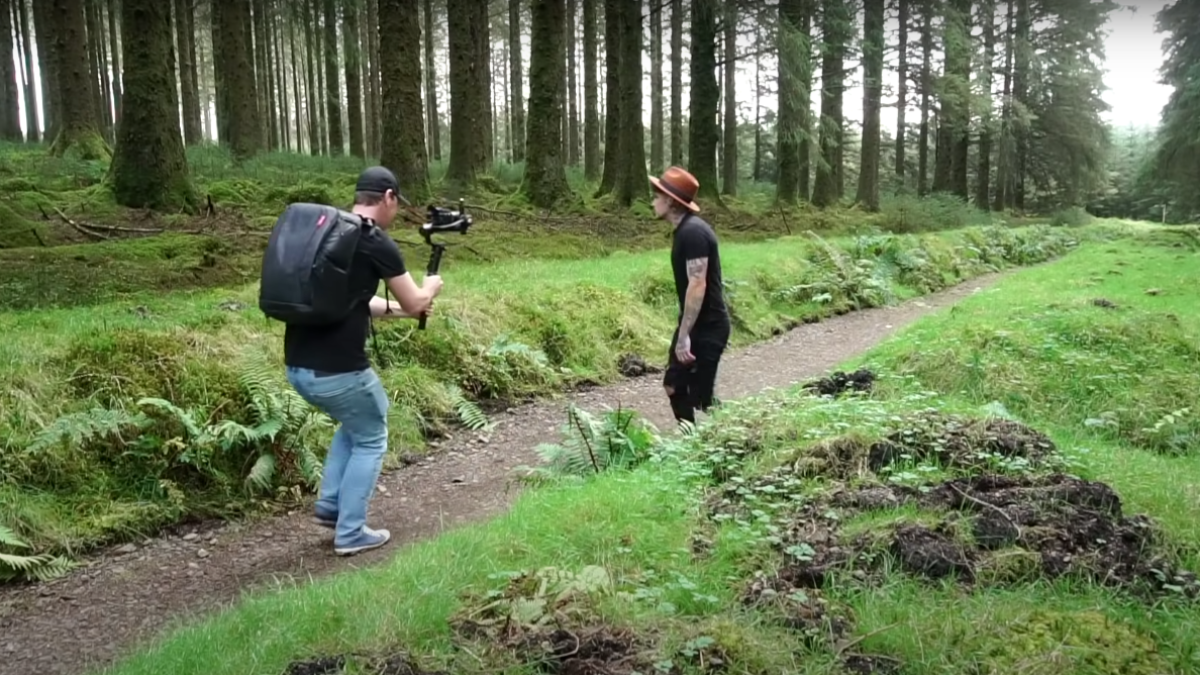
Tip: The Step-In Reveal is similar to The Reverse Follow. We’re going to track our camera backward and then have our subject step into the frame. This gimbal move involves a minor choreography, yet still nice and simple. This is a great way to show off your location and then introduce your subject.
The Mini Jib Reveal – Move No. 4
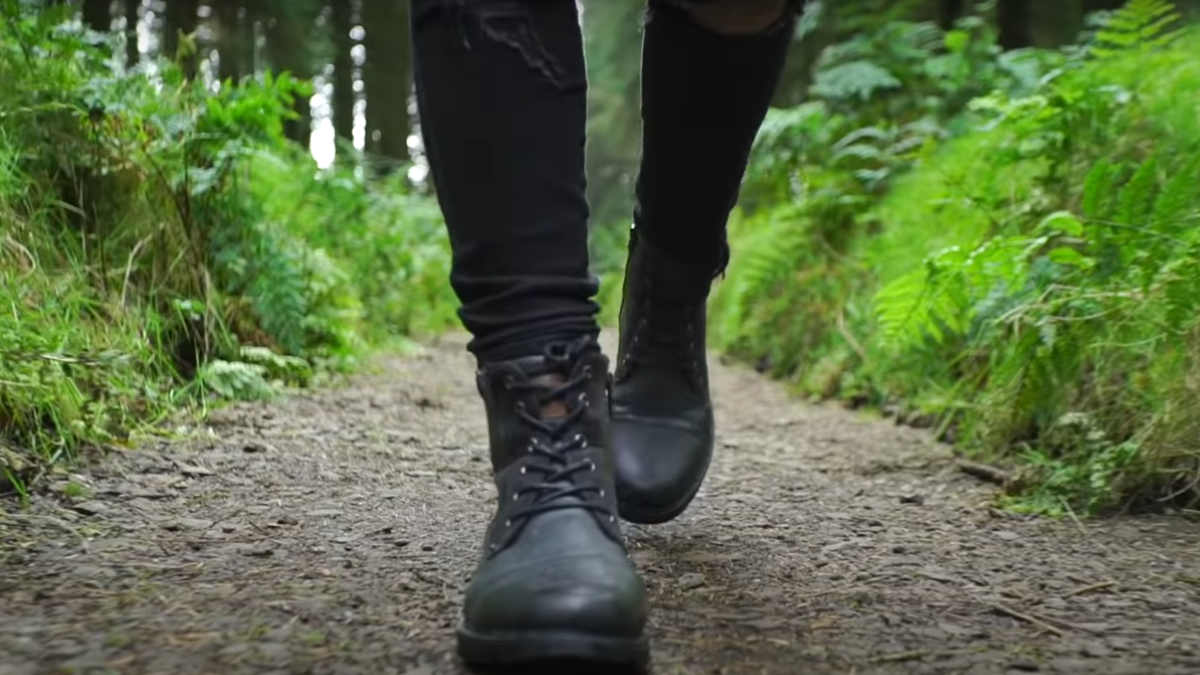
Tip: Once again, we’re going to track backward for The Mini Jib Reveal, only this time we’re going to start on our subject’s feet, and then slowly lift our camera up. This is a great shot for revealing your subject. The framing helps you establish your character; “the boots”, “ripped jeans”, and “tattoos”.
All of this information helps the audience get a much better understanding of who your character is.
The Side Track – Move No. 5
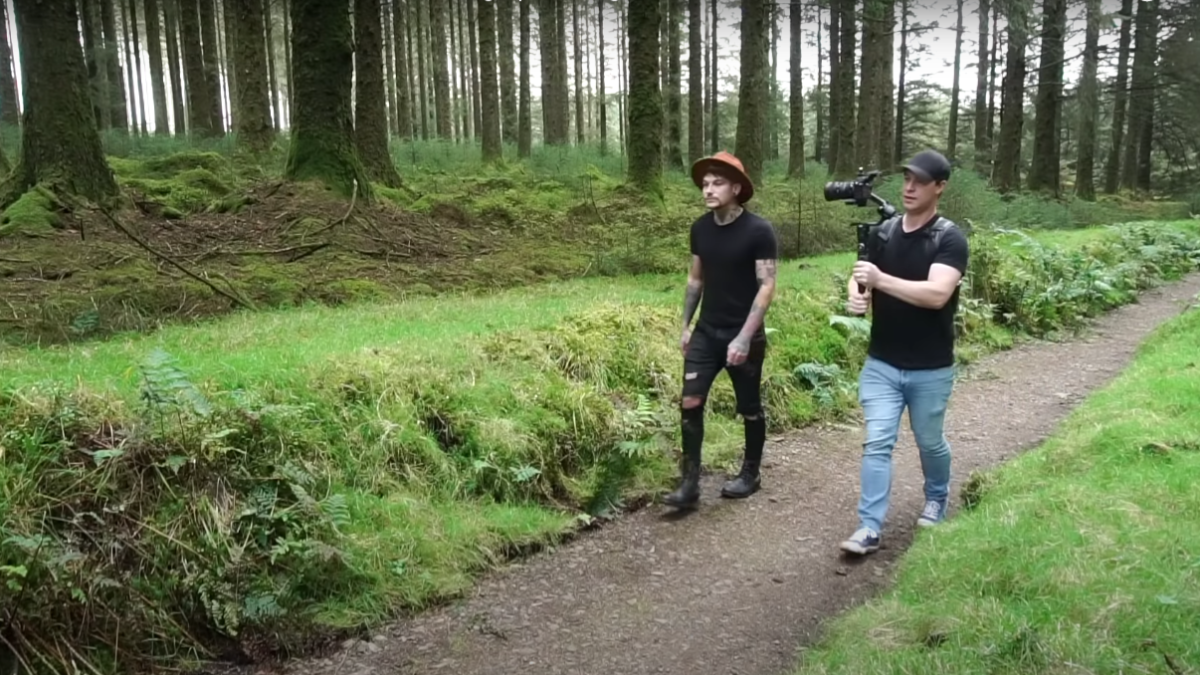
Tip: Okay! Our number five move is The Side Track. It does look easy, but it can be a little tricky to execute. Note, how Steve’s walking forwards but his camera is facing to the right.
DON’T BE A CRAB!
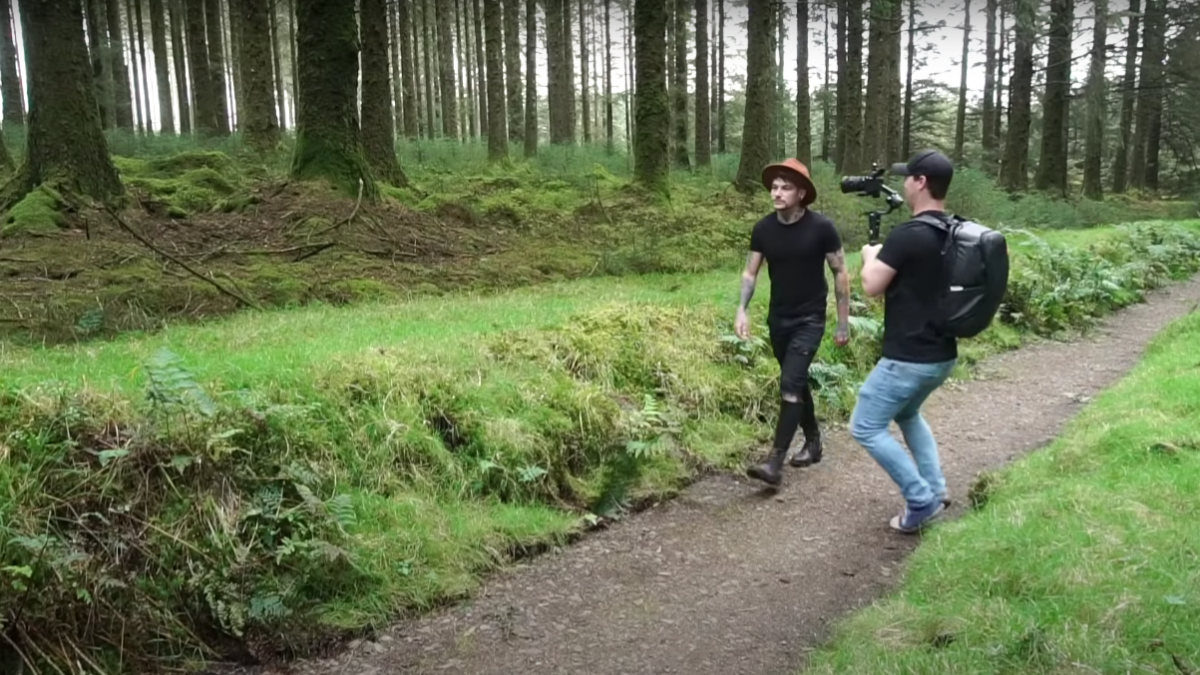
Bonus Tip: A common mistake when first starting out is trying to walk sideways, instead of forwards just like a crab. Not only does this look ridiculous, but your shot will look awful! DON”T BE A CRAB.
Walk forwards whenever possible, and frame your shot by turning your camera to either the left or the right. This creates a much smoother shot and allows you to film your subject in a much easier way.
The Chest Transition – Move No. 6
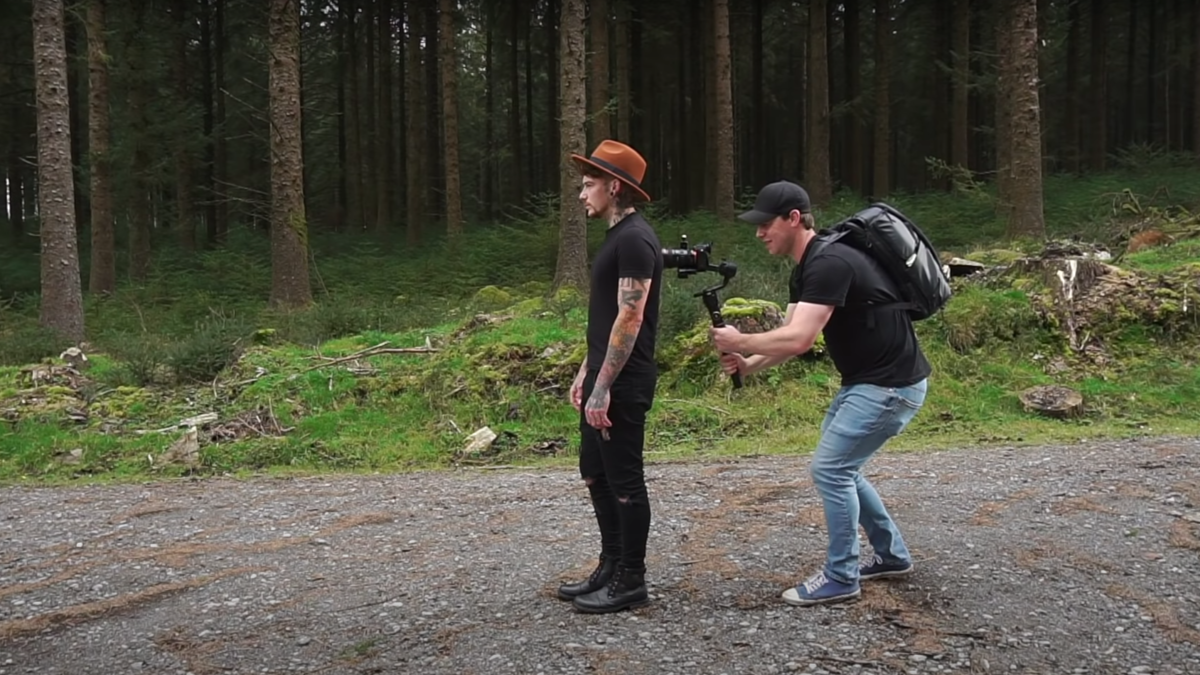
Tip – The number six gimbal move is The Chest Transition. It’s getting a little bit more creative now, and you’re going to need two shots to pull this one-off.
Shot 1: Push forward towards your subject, and then stop directly in the middle of their chest. The aim here is to end your shot on a black frame.
Shot 2: You now want to start your shot on a black frame. Put your camera nice and close to your subject’s back and then move your camera backward as your subject moves forwards.
Now edit these two clips together, using nothing, but a simple cut. This couldn’t be easier and it’s transitions like this that help make your footage stand out and keep your audience engaged.
The Soft Focus Reveal – Move No. 7
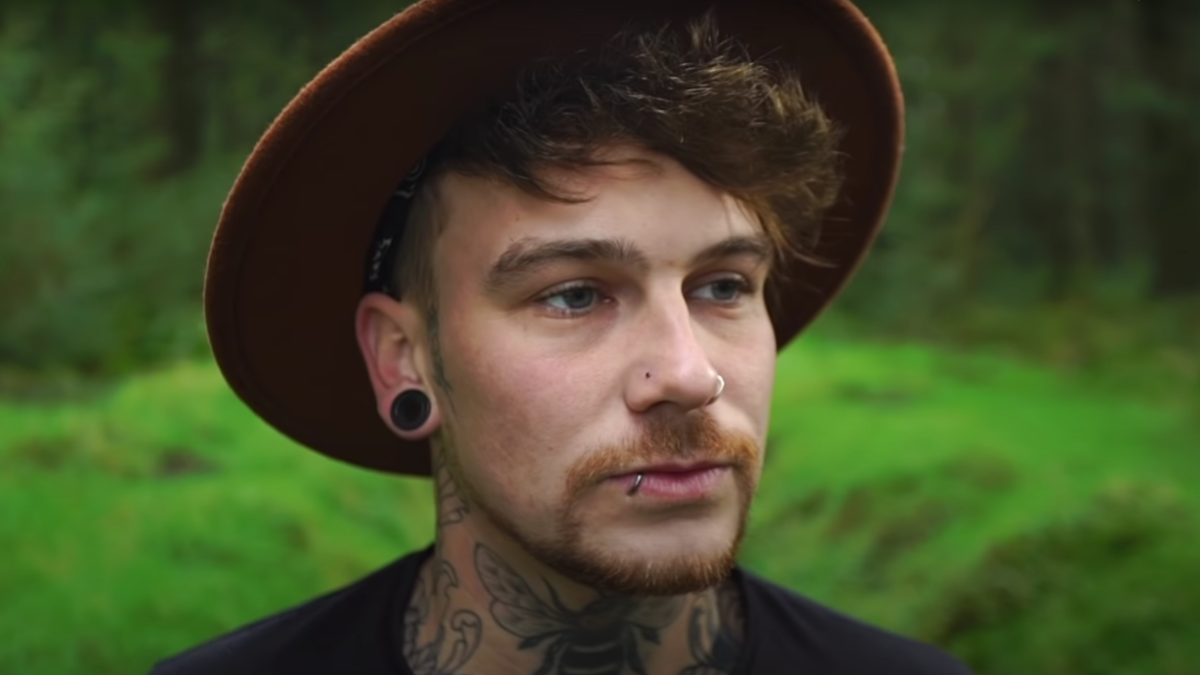
Tip: At number 7 is The Soft Focus Reveal. You’re going to shoot this one in reverse. Start by framing your subject and locking your focus on the actor’s face. Then, hold your shot for just a few seconds, and then pull backward, until you have a wide shot of your subject. You’re then going to reverse this shot so that the camera pushes forwards in soft focus and then reveals our subject as we get closer.
This is a great way to add a bit more intrigue to your character reveal and ensures that you hit your focus every single time.
The Wipe Transition – Move No. 8
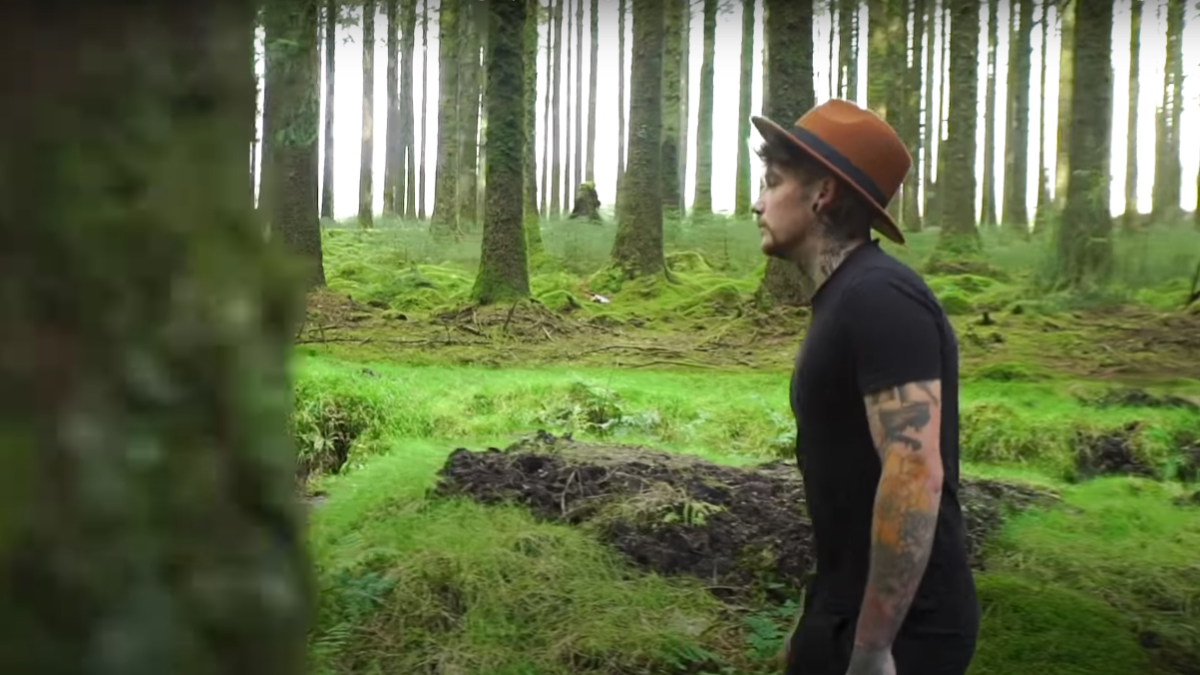
Tip – Okay! At number 8 is The Wipe Transition. Again, you’re going to need 2 shots.
Shot 1: Track your subject from the side and use something in the foreground to wipe past the camera. I have used a tree. Get your camera nice and close to your foreground, and make sure it fills the whole of your frame. Check that again, and hold it there. This is what you’re looking for, an unidentified blurry mess or motion blur.
Shot 2: You’re now going to start your second shot on an unidentified blurry mess. I’m going to use another tree and try and match the speed of my first shot as this will create a much more seamless transition.
Now, edit these two clips together, using nothing but a simple cut, and just like that you’ve created an in-camera transition, that can be created very quickly using any editing software.
The Orbit – Move No. 9
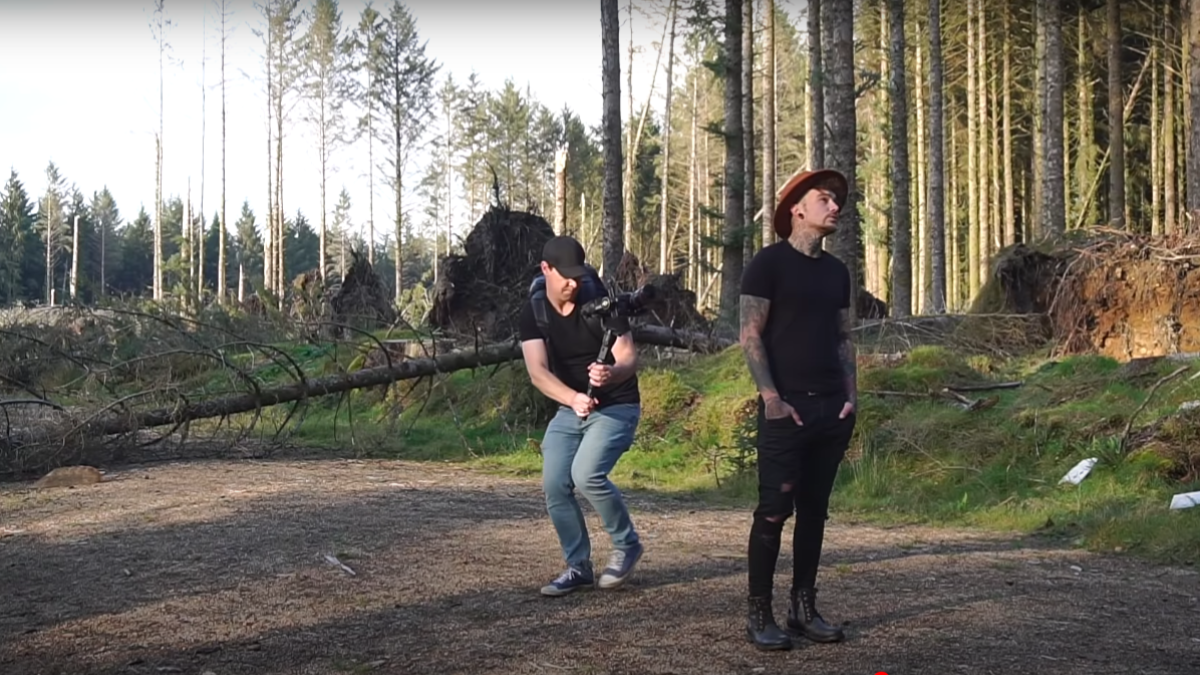
Tip – Now, we are at number 9, The Orbit. You’re going to walk around our subject in circles keeping an equal distance from them at all times. I recommend shooting this on nice solid even ground and trying to keep your subject in the center of the frame. This is another camera move used in many Hollywood films. Director Michael Bay loves this one.
Try to experiment with your angles and focal length. The wider your shot the more of the environment you will see. Also, angle your camera up slightly and you will get much more in.
The Fake Drone – Move No. 10
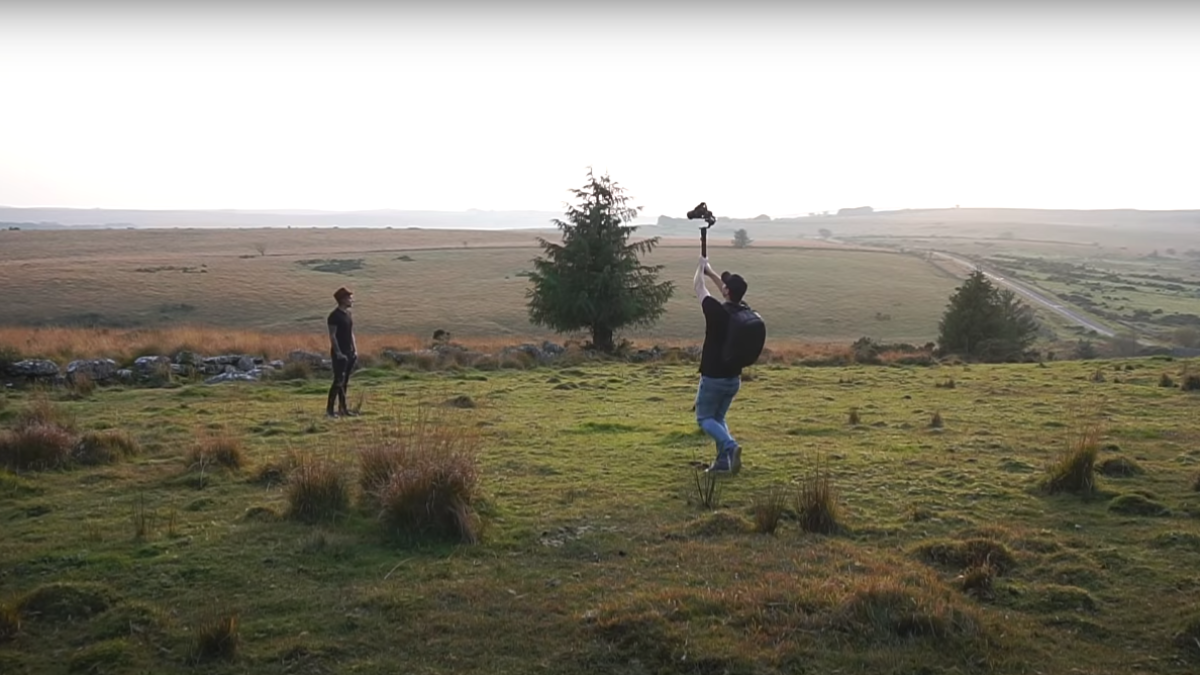
Tip: Gimbal move number 10 is dramatic and it is The Fake Drone shot. This is one of my favorite gimbal shots. Get nice and close to your subject, shoot wide and pull back while slowly lifting your gimbal up as high as it will go. Shoot this at a location with an epic view and just like that you’ve shot what looks like a drone shot.
It is sure you won’t get the height of a drone with this, but it definitely replicates that smooth elevated camera movement usually associated with drones. It is perfect as an ending shot to your sequence or movie and great for showing off your location.
Final Words
So there you have 10 gimbal moves to make your film look epic. Hopefully, this has given you some go-to camera moves for the next time you’re out on a shoot. A big thank you to Steve Wright and Learn Online Video.
Steve’s Equipment
Camera Setting/Gear Used:
– Camera: Sony A7S ii
– Lens: 17-40mm
– Zhu Crane 2s
Tell us what you think? What ideas did you get? Do you have any suggestions? Or did it help you? Let’s have your comments below and/or on Facebook or join me on Twitter
Follow Steve Wright on Social Media
Website
LinkedIn
YouTube
Facebook
Instagram
MORE STORIES FOR YOU
The Stress is Killing Me by Tom Carroll Releases on VOD, DVD March 2025
Freestyle Acquires Comedy, The Stress is Killing Me
BAFTA Nominated Rock, Paper, Scissors by Franz Bohm and Hayder Rothschild Hoozeer
The Gripping and Emotional War Drama Rock, Paper, Scissors gets a 2025 BAFTA Nomination
Welcome by Jevon Boreland: Streams on Major VOD Platforms from Feb. 11, 2025
Welcome streaming on major VOD platforms beginning February 11, 2025
Buried Alive: The Clay Killer by Clive Christopher: Worldwide Release on February 4, 2025
A gripping psychological crime thriller from Director Clive Christopher
The Greatest of All Tina by Brody Gusar: A Woman Lives Life as a Goat
Freestyle Acquires “The Greatest of All Tina” for Feb 25th Release
Dovecote by Marco Perego: A Prison Short Drama with Zoe Saldaña
Marco Perego’s profound prison drama DOVECOTE, starring Zoe Saldaña









